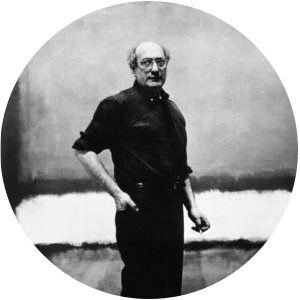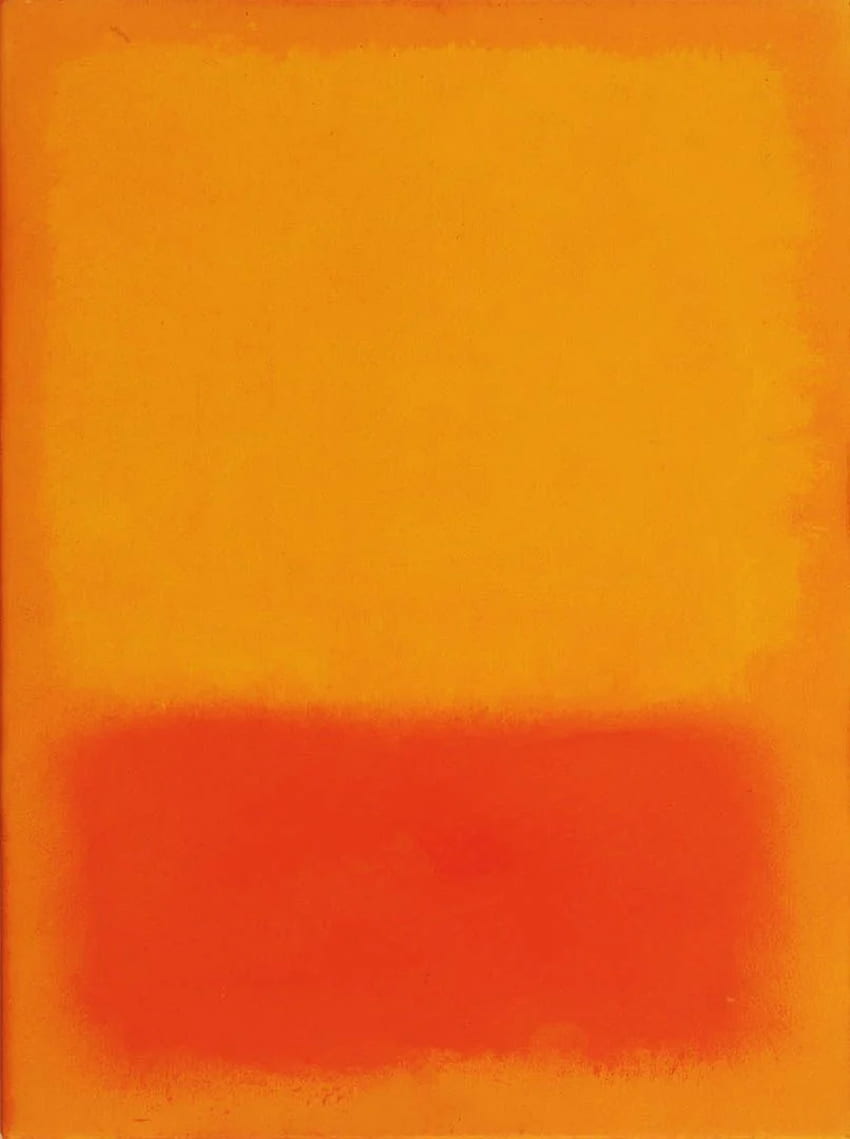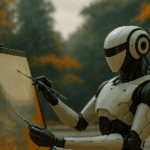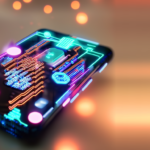“I’m interested only in expressing basic human emotions tragedy, ecstasy, doom, and so on.” – Mark Rothko
Why Rothko Still Pulls Crowds
Why his colors still cut through the chaos of today
 Walk into the Rothko Chapel in Houston and you’ll see people sit for hours in front of near-black canvases. No flashy colors, no narrative, no “content.” Just presence. In an era where TikTok fights for every second of our attention, Rothko’s work feels almost subversive. He offers nothing but silence, and somehow, that silence attracts 110,000 visitors a year.
Walk into the Rothko Chapel in Houston and you’ll see people sit for hours in front of near-black canvases. No flashy colors, no narrative, no “content.” Just presence. In an era where TikTok fights for every second of our attention, Rothko’s work feels almost subversive. He offers nothing but silence, and somehow, that silence attracts 110,000 visitors a year.
Rothko’s art has always been about emotions you can’t put into words tragedy, ecstasy, dread, transcendence. In 2024, that feels more urgent than ever.
The Exhibition Moment
Rothko’s return to Washington and Paris
This past year has been a Rothko renaissance. The National Gallery of Art in Washington, D.C., wrapped its “Paintings on Paper” show (Nov 2023–Mar 2024), bringing over 100 works to light many never before seen publicly. These weren’t sketches; they were finished pieces, proof that Rothko’s “minor” works carried the same intensity as his monumental canvases.
Meanwhile, Paris staged its first Rothko retrospective since 1999 at the Fondation Louis Vuitton(Oct 2023–Apr 2024). Over 100 major works traveled across decades of his career. For younger audiences raised on digital feeds, it was a revelation: you can’t swipe past Rothko. You either stand in front of it, or you miss it.
Rothko vs. The Noise of Now
A counterpoint to AI and infinite scroll
We live in the age of generative AI, infinite scroll, and design software that churns out a dozen “masterpieces” in seconds. Rothko is the antidote to that acceleration. His paintings don’t scream to be liked; they wait. They demand slowness.
That’s why curators frame him as a counterpoint to AI art. Where algorithms remix data for novelty, Rothko distilled paint into silence. In a way, he was practicing “slow art” before slow art was a movement.
The Market Still Speaks
A counterpoint to AI and infinite scroll
Collectors haven’t lost their appetite. In 2021, a Rothko sold for $82.5 million at Christie’s. Even with the cooling art market of 2023–24, Rothko remains a safe bet for blue-chip buyers. Why? Because scarcity meets myth. AI can generate infinite Rothko-like gradients, but there’s only one Rothko who battled depression, who obsessed over Nietzsche, who painted black on grey as a final meditation. That human story cannot be replicated.
Influences That Still Resonate
Nietzsche, tragedy, and spiritual echoes
Rothko read Nietzsche like scripture and borrowed from Greek tragedy. His thin veils of color were meant to summon the same primal emotions as an ancient chorus. In 2024, when spirituality is often outsourced to apps and guided meditations, his work feels like a reminder that transcendence can happen in front of paint on canvas.
Dark Genius, Bright Legacy
Despair, solidarity, and the human condition
Rothko’s own story ended in despair he took his life in 1970. That darkness shadows his legacy, but it also deepens the intensity of his work. Today’s viewers, often negotiating burnout, anxiety, and overstimulation, find in Rothko not just gloom but solidarity. He painted the human condition in fields of color.
Rothko in 2024
From museums to mood boards
Rothko isn’t just a museum figure; he’s back in the cultural bloodstream. Designers cite him in mood boards. Fashion brands borrow his palette for “quiet luxury” campaigns. Contemporary artists revisit his ideas to argue for emotion over spectacle. Even tech critics use him as shorthand: Rothko is everything AI art is not.
In short, he’s become a reference point not only for art history but for how we think about attention, meaning, and slowness in a hyper-accelerated world.
Color & Culture
How palettes shape emotion and identity
- Leatrice Eiseman — Color Harmony in Design: “The psychology behind what shades make us linger.”
- Pantone Institute — Pantone Viewpoint: Peach Fuzz 2024: “Why color of the year is about mood, not pigment.”
- Psychology of Aesthetics Journal — The Emotional Life of Color: “Research on how hues shape memory and mood.”
- Vogue — Quiet Luxury and the Return of Soft Power Colors: “How muted palettes became the loudest fashion statement.”
Final Thought
The art of breaking patterns to build meaning
Rothko didn’t paint stories. He painted atmospheres. In 2024, that feels like prophecy. As the world speeds up, his silent canvases slow us down. Maybe that’s his real genius: showing us that art doesn’t always need to explain itself, because the deepest truths arrive when words stop.
References
- National Gallery of Art (2023–2024): Mark Rothko: Paintings on Paper
- Fondation Louis Vuitton (2023–2024):Mark Rothko Retrospective
- The Rothko Chapel: Visitor Data and Mission
- Christie’s Auction House (2021): Rothko Sale Results, May 2021



